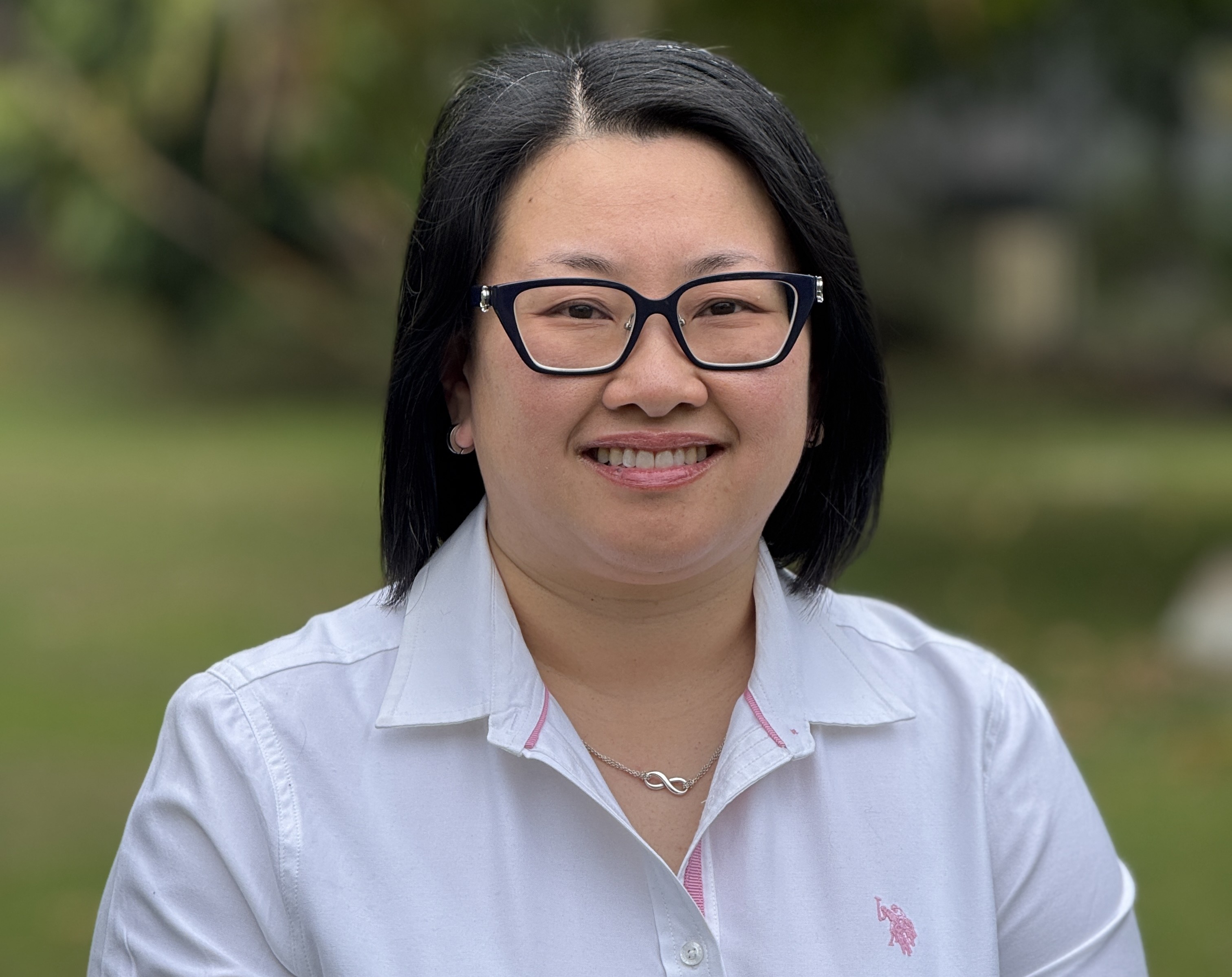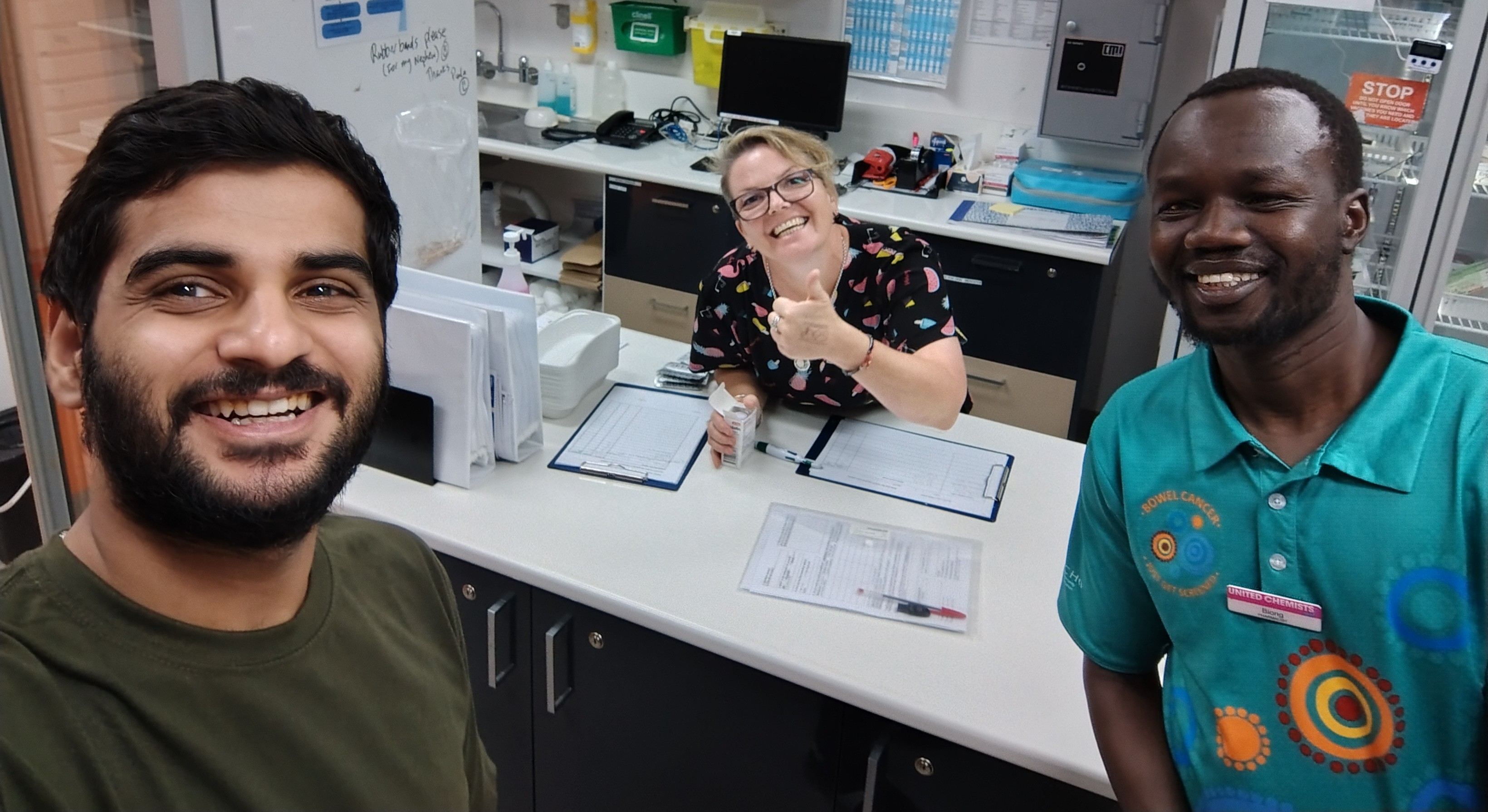Following a two-year process to become a registered pharmacist in Australia, Huzaefa is now the pharmacist in charge at United Chemists, in Tennant Creek – one of the most remote pharmacies in the country.
Tennant Creek is a small outback town with a population some 3,000 people, located more than 1,000 kilometres south of Darwin, the Territory’s capital.
We supply medicines to four bush clinics which are small clinics in very remote areas, as well as a mental health clinic and a First Nations corporation
Huzaefa Sheikh
A world away from home
The town sits amid vast, arid landscapes and the isolation is real. Hundreds of kilometres of unpaved roads stretch between Huzaefa’s pharmacy and the nearest towns with pharmacies – including Katherine or Alice Springs.
Despite this, the Tennant Creek pharmacy serves some 7,000 people across a council area covering more than 300,000 square kilometres – which is an area about the size of Italy.
“We supply medicines to four bush clinics which are small clinics in very remote areas, as well as a mental health clinic and a First Nations corporation,” Huzaefa said.
Journey to Australian registration
After working as a pharmacist in Pakistan for four years, Huzaefa undertook equivalency exams and an internship to receive his Australian registration, which was granted in July.
Huzaefa represents a growing number of overseas-qualified pharmacists migrating to Australia.
Overcoming cultural differences has been his biggest challenge.
“When I moved here, I wasn’t aware of Indigenous communities and their struggles with healthcare – you only hear about places like Sydney and Melbourne,” he said.
Overseas-trained pharmacists made up more than half of all first-time registrations in the 2023 to 2024 financial year, according to the annual report of the Australian Health Practitioner Regulation Agency.
The report showed some 38,000 pharmacists were registered with the Pharmacy Board.
There were 3,041 new registrants of which 1,322 were domestic registrants and 1,719 were international.
In the previous year, 779 new registrants were from overseas. A spokesperson for the Australian Health Practitioner Regulation Agency and the Pharmacy Board of Australia declined to comment on skilled migration settings — but said the regulator would continue to ensure Australia’s pharmacists are suitably trained, qualified and safe to practice.
Addressing workforce shortages in remote areas
Recruitment is a major challenge, especially in regional areas.
A Pharmacy Guild of Australia 2023 survey found 74 percent of surveyed pharmacies had trouble recruiting and retaining staff, with regional pharmacies having the most difficulty
Khanh Nguyen works at the Australasian College of Pharmacy as an intern training program and vaccination manager and said she believes enticing more internationally trained pharmacists will help solve the nation’s health workforce shortage, particularly in hard-toreach places.
So, if they were a prescribing pharmacist from England, as an example, their prescribing qualification would not be recognised, and they would be required to complete the full scope practice training here.
Khanh Nguyen
Khanh said, however, there are strict processes to follow to receive registration in Australia
The pathway varies depending on a pharmacist’s previous experiences. Supervised practice hours, and oral and written exams, are a requirement.
Some migrating pharmacists need to undergo an accredited internship in the same way Australian university graduates do.
Different cultures
The duration of the process depends on the time it takes to obtain employment, apply for a visa and find suitable accommodation.
Khanh said while each overseas-trained pharmacist faces their own issues during their training and relocation, the common theme was language barriers and cultural differences.
“Some come from very conservative cultures and understanding the Australian way of life and even just using our lingo can be very overwhelming,” she said.
Khanh pointed out overseas-qualified prescriber pharmacists need to undertake a postgraduate course through an Australian provider to enable practising at full scope.
“So, if they were a prescribing pharmacist from England, as an example, their prescribing qualification would not be recognised, and they would be required to complete the full scope practice training here,” she said.
“I believe [though] there could be possible movements towards standardisation in the future.”

Khanh Nguyen has been a registered pharmacist for 20 years and oversees the national internship program at the Australasian College of Pharmacy
A rewarding role in the Northern Territory
For Huzaefa, being a registered pharmacist in Australia has developed his professional skills in a way he never dreamed possible.
He is trained to give vaccinations and has permission to prescribe medicines for urinary tract infections.
He is also enrolled in the Home Medicines Review Training Program and plans to undertake a prescribing course in the Northern Territory.
“You are involved in everything in Australia and have a very important role in the healthcare system,” he said.
“It is very rewarding, and I just want to keep getting better.”










